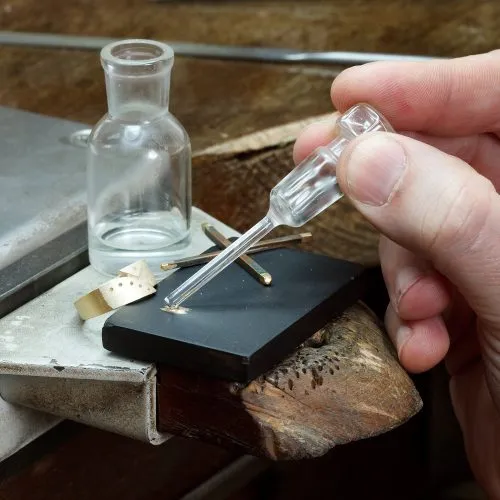Recovery from injuries, surgeries, or chronic conditions often feels like a challenging journey. However, there are touchstone techniques that can help you navigate this path effectively and with confidence. From physiotherapy to mental strategies, these techniques can be your guiding light on the road to recovery. In this guide, we’ll explore the essentials of recovery, including the role of physiotherapy in the process.
Understanding the Recovery Journey
The Road to Healing
Recovery is a multifaceted journey that encompasses physical, mental, and emotional aspects. Whether you’re healing from a sports injury, a surgical procedure, or managing a chronic condition, understanding the process is essential. Each person’s recovery journey is unique, but some common touchstone techniques can guide you along the way.
The Role of Physiotherapy: A Key Touchstone
Meet Physio Eveleigh
Physiotherapy, often referred to as “physio,” plays a pivotal role in many recovery journeys. Physio Eveleigh and professionals like her are dedicated to helping individuals regain their mobility, reduce pain, and improve their overall quality of life. They use evidence-based techniques and exercises tailored to your specific condition to promote healing and recovery.
- Pain Management:
Physiotherapists are skilled in various pain management techniques, including manual therapy, modalities like ultrasound or heat therapy, and exercises to reduce pain and discomfort.
- Improved Mobility:
Whether you’re recovering from surgery, an injury, or dealing with a chronic condition, physiotherapy can help restore your mobility and function.
- Strengthening Exercises:
Physiotherapists prescribe targeted exercises to strengthen muscles and improve joint stability, helping you regain confidence in your movements.
- Individualized Treatment Plans:
Physiotherapy is highly personalized. Your physiotherapist will assess your condition and create a tailored treatment plan that suits your unique needs and goals.
Mental Resilience: The Mind as a Touchstone
Power of the Mind
In the journey to recovery, mental resilience is a touchstone that often gets overlooked but is equally crucial. The mind has a profound impact on the healing process. Here are some strategies to harness the power of your mind during recovery:
- Positive Visualization:
Visualize your recovery journey with a positive outlook. Imagine yourself regaining strength and returning to your favorite activities.
- Set Realistic Goals:
Break your recovery into achievable milestones. Celebrate small wins along the way to keep your motivation high.
- Mindfulness and Meditation:
Practicing mindfulness and meditation can help you manage stress, reduce pain perception, and improve overall well-being.
- Seek Support:
Don’t hesitate to lean on friends, family, or support groups. Sharing your challenges and victories can be incredibly empowering.
Nutrition and Hydration: Nourishing the Body
Fueling Recovery
Proper nutrition and hydration are touchstone techniques that support the body’s healing processes. Ensure you’re getting a well-balanced diet rich in essential nutrients:
- Protein for Tissue Repair:
Protein is crucial for repairing damaged tissues. Include lean sources like poultry, fish, and legumes in your diet.
- Vitamins and Minerals:
Vitamins like C and D, along with minerals like calcium and magnesium, play vital roles in the recovery process. Incorporate a variety of fruits, vegetables, and dairy products into your meals.
- Hydration:
Staying hydrated is essential for overall health and aids in the healing process. Aim to drink plenty of water throughout the day.
- Anti-Inflammatory Foods:
Foods like berries, fatty fish, and nuts have anti-inflammatory properties that can help reduce inflammation and pain.
Patience and Persistence: The Ultimate Touchstones
The Roadblocks of Recovery
In any recovery journey, there will be obstacles and setbacks. Patience and persistence are the ultimate touchstones that will help you overcome these challenges:
- Setbacks Are Normal:
Understand that setbacks are a natural part of recovery. Don’t be discouraged; use them as learning opportunities.
- Stay Committed:
Maintain your commitment to the recovery process, even when progress seems slow. Consistency is key.
- Celebrate Progress:
Celebrate every milestone, no matter how small. Recognizing your achievements will boost your motivation.
- Ask for Help:
Don’t hesitate to reach out to your healthcare team, or support network when you face challenges. They can offer guidance and encouragement.
Support System: The Pillar of Recovery
Lean on Your Network
Having a support system is a touchstone that can significantly impact your recovery journey. Your network of friends, family, and healthcare professionals can provide emotional support, encouragement, and practical assistance when needed.
- Communicate Your Needs:
Let your support system know how they can best assist you. Whether it’s help with daily tasks, transportation to appointments, or simply lending a listening ear, clear communication is essential.
- Share Your Progress:
Keep your loved ones updated on your recovery milestones. Sharing your achievements with them can strengthen your bonds and provide motivation.
- Join Support Groups:
Consider joining support groups or communities of individuals who are going through similar recovery journeys. These groups can offer valuable insights and a sense of belonging.
The Guiding Light of Touchstone Techniques
Recovery can be a challenging and transformative journey, but with the right touchstone techniques, you can navigate it successfully. Whether it’s physiotherapy, mental resilience, proper nutrition, or a strong support system, each touchstone plays a vital role in your healing process. Remember, recovery is not just about regaining physical health; it’s about finding strength, resilience, and a deeper understanding of yourself along the way. Embrace these touchstones, and let them be your guiding light on the path to recovery.







































Discussion about this post